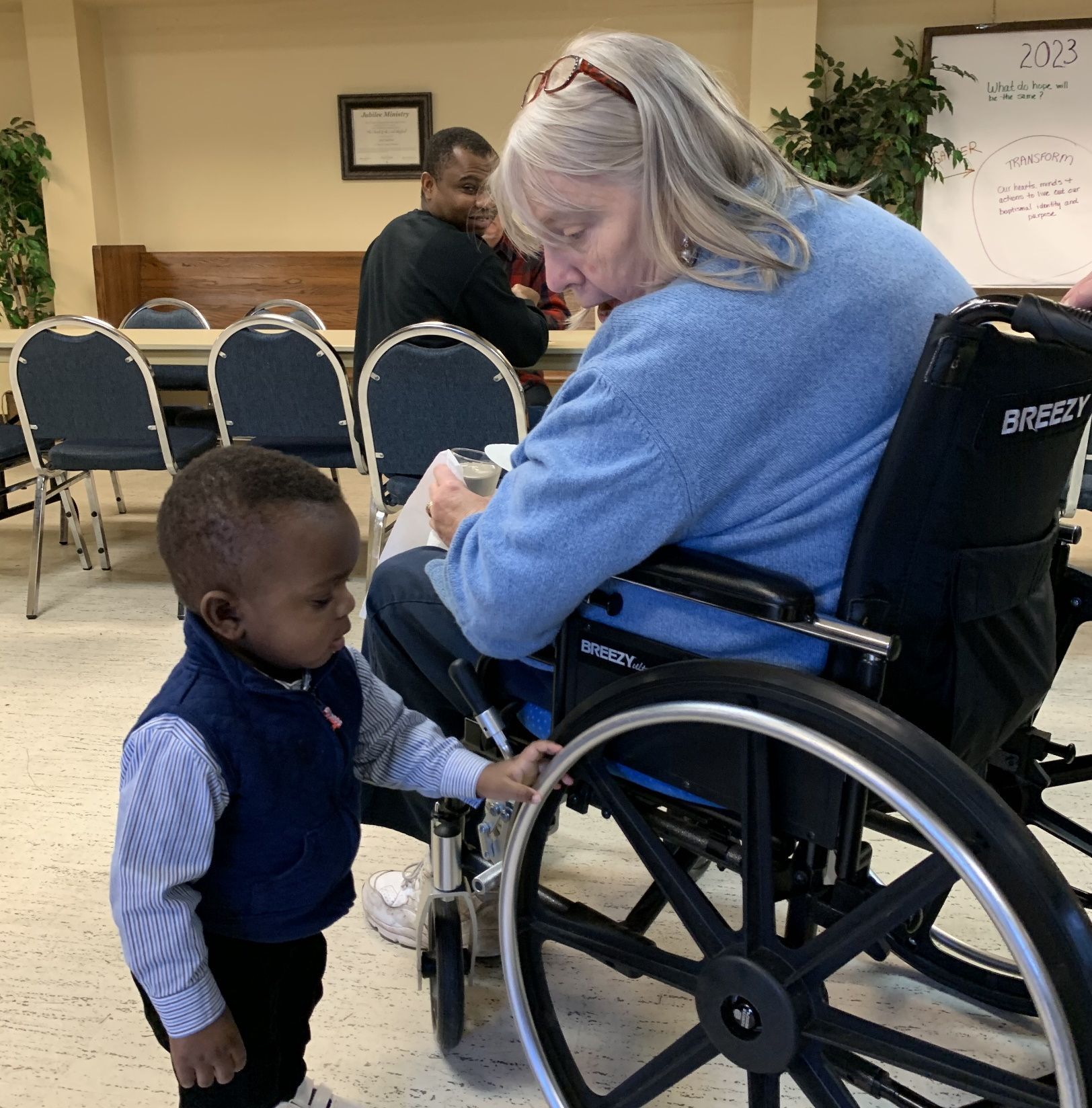
Friends can be of any age.
Investing in one another means transcending generations.
When most people hear the word “intergenerational,” they usually assume we’re talking about making a place for children. We are—and we’re also talking about making a place for elders, busy professionals, empty-nesters, parents, singles, young adults, and everybody else. Our lifestyles are many and diverse, and this is part of the beauty of belonging to a church. We are always trying to be more attentive to the Holy Spirit’s call to be the Church for people of every age. We recognize the following realities and try to structure our ministries around them:
- All generations can learn from one another.
- Weekly worship is our primary faith formation. Sunday worship is not individual meditation time for adults, but community time for all ages. There are times and places to separate out age groups, but Sunday Eucharist is not one of them. Because this isn’t always easy for parents of young children, it’s on all of us to help raise kids in the church and support and reassure their parents from week to week.
- “Intergenerational” doesn’t just mean “inclusive of children.” But this is often the most crucial need, because children grow up quickly. Elders may occasionally misplace a year; children rarely misplace a week.
- It takes intention and effort for elders to respect young people. This means working to know and understand each individual young person over and over again as they age.
- Most young people today have little connection with religion. But we believe that the Holy Spirit is active in present-day cultural and national conversations, and that these are worthy to be brought into the church for discussion.
- Intergenerational work will often take place outside church walls, including such spaces as our extended families, workplaces, civic life, and online communities.
- We are never finished learning. Every Christian can expect to be in formation for life.

